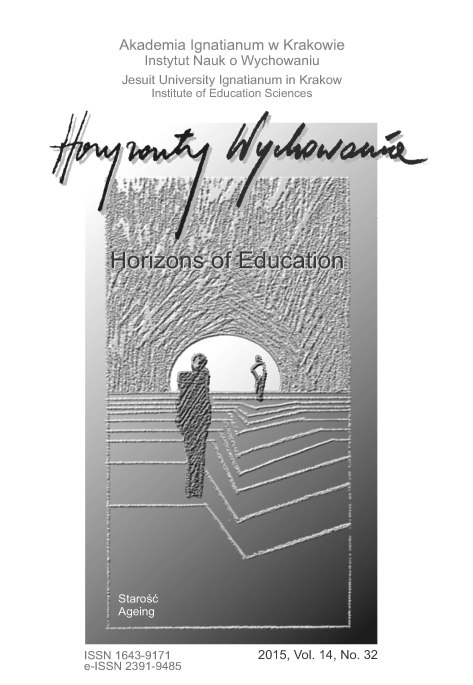Wychowanie a praca na przykładzie firmy Novmar
Education and Work: a Case Study on the Example of the Novmar Company
Author(s): Katarzyna Coufał-LenczowskaSubject(s): Business Economy / Management, Human Resources in Economy, Socio-Economic Research
Published by: Uniwersytet Ignatianum w Krakowie
Keywords: education through culture and art; humanistic atmosphere at work; mutual respect and friendship at work; non-negotiable set of values; continuing education and improving qualifications;family business;
Summary/Abstract: Artykuł podejmuje dwutorowo tytułowe zagadnienie: z jednej strony uwzględnia wychowanie do pracy w procesie edukacji: formalnej i nieformalnej, z drugiej wskazuje na wychowanie przez pracę dokonujące się w trakcie jej przebiegu. Podstawę do rozważań stanowi encyklika Jana Pawła II Laborem exercens (1981 r.), ze względu na dostrzeganie człowieka jako podmiotu pracy oraz podkreślanie godności ludzkiej pracy. Istotne jest również to, że praca powinna służyć człowiekowi w zakresie rozwijania nauki i techniki, kultury i moralności. Na przykładzie budowlanej firmy Novmar (założonej w 1990 r. w Krakowie) chcemy podkreślić wspólnotowy wymiar pracy oraz znaczenie moralnych zasad krzewionych przez jej założyciela i prezesa. Pragniemy wskazać, w jaki sposób szeroko rozumiana kultura wpływa na naszych pracowników i kształtuje ich postawy. Staramy się przekonać, że wbrew współczesnym negatywnym trendom, istnieje nienegocjowany rdzeń, pewien zestaw wartości, którym firma od początku założenia jest wierna. Świadczymy, po dwudziestu pięciu latach istnienia przedsiębiorstwa, że dzięki kulturze osiągnęliśmy sukces jako firma. Okazuje się, że choć z punktu widzenia finansowego i ekonomicznego, kultura pozornie tylko "łapczywie" czerpie, to jednak daje ogromnie wiele w sensie duchowym, co przekłada się na lepszą, wydajniejszą i bardziej odpowiedzialną pracę zespołową. The issue signalled in the title is approached in two ways: on one hand, the author takes into account education to work within the framework of both formal and informal education, on the other - she points to the in-service education through work. The basis for the discussion is John Paul II's encyclical Laborem Exercens (1981) on account of its perception of man as the subject of work and emphasizing the dignity of human work. It is also important that work should serve people in developing science and technology, culture and morality. Through a case study of the Novmar Construction Company (founded in 1990 in Krakow) we want to highlight the community dimension of work and the importance of moral principles promoted by its founder and president. We would like to point out how the wider culture affects our employees and shapes their attitudes. We are trying to convince the reader that, contrary to the contemporary negative trends, there exists a non-negotiable core, a set of values, to which the company has been true since its beginning. We testify that, after twenty-five years of existence, the company has achieved success as a business through its culture. It turns out that, although from the financial and economic point of view the culture seems only to draw on the resources, it actually gives very much in the spiritual sense, which translates into better, more efficient and more responsible teamwork.
Journal: Horyzonty Wychowania
- Issue Year: 14/2015
- Issue No: 30
- Page Range: 245-258
- Page Count: 14
- Language: Polish

